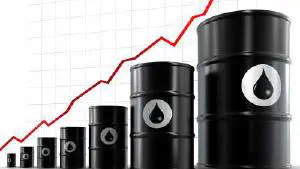Overview
Forex, short for “foreign exchange,” is a decentralized global financial market where currencies are traded. It serves as the primary marketplace for buying, selling, exchanging, and speculating on the value of various world currencies. The Forex market is crucial for facilitating international trade and investment, as it allows businesses, governments, investors, and individuals to convert one currency into another, typically for commerce, investment, tourism, or hedging purposes.
Market Structure: The Forex market operates 24 hours a day, five days a week, across major financial centers worldwide, including New York, London, Tokyo, and Sydney. It does not have a centralized physical location or exchange, unlike stock markets. Instead, trading occurs electronically, making it accessible to participants from around the globe.
Currency Pairs: In Forex trading, currencies are quoted and traded in pairs. Each currency pair consists of two currencies, with one being the base currency and the other the quote currency. For example, in the EUR/USD pair, the Euro (EUR) is the base currency, and the US Dollar (USD) is the quote currency. The exchange rate represents how much of the quote currency is needed to purchase one unit of the base currency.
Liquidity and Volume: The Forex market is known for its high liquidity, with a daily trading volume that exceeds $6 trillion, making it the most liquid financial market globally. This liquidity ensures that traders can easily buy or sell currencies, often at competitive prices, without significant price fluctuations.
Participants: Various participants engage in Forex trading, including commercial banks, central banks, multinational corporations, hedge funds, retail traders, and individual investors. Central banks, through monetary policy, can influence exchange rates to manage economic stability.
Speculation and Hedging: While international businesses use Forex to facilitate international trade and manage currency risk (hedging), many participants engage in speculation. Forex traders aim to profit from changes in exchange rates by buying or selling currency pairs, hoping that the value of one currency will appreciate or depreciate relative to the other.
Risk and Leverage: Forex trading offers the potential for substantial profits, but it also comes with significant risk. Traders can use leverage, which allows them to control larger positions with a smaller capital outlay. However, leverage magnifies both potential gains and losses, making risk management crucial. Successful Forex trading often requires a deep understanding of market analysis, risk management strategies, and a disciplined approach.
In conclusion, the Forex market is a dynamic and highly liquid global marketplace where currencies are exchanged. It plays a pivotal role in facilitating international commerce, investment, and financial transactions. Forex trading involves currency pairs, speculation, and risk management and is accessible to various participants, from central banks and multinational corporations to individual retail traders. Due to its 24/5 trading hours and decentralized structure, it offers opportunities for traders and investors to participate in the world’s largest and most active financial market.



